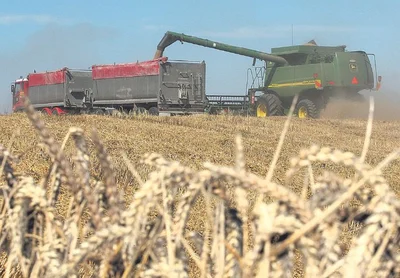Royalties for farm-saved seed

Farmers who save and replant seed developed and protected by a plant breeder will be asked to pay royalties to the breeders from this year.
The announcement comes after members of the seed and plant breeding industry Plant Breeding & Research Association (PBRA) and Federated Farmers Arable worked together to develop a system to collect royalties on farm-saved seed.
PBRA general manager Thomas Chin said the royalties scheme was built on provisions of the Plant Varieties Rights Act 2022 and would ensure fairer returns for plant breeders who invested millions of dollars each year to development of new, improved cultivars.
A new cultivar typically costs more than $1m to develop and can take up to a decade to reach the retail market, he said.
The PBRA will form an agency to manage the scheme and collect royalty payments from farmers on behalf of the plant breeders. All farmers will be asked to complete a voluntary declaration, with those not using protected farm-saved seed filing a nil return.
Farmers who save and replant Plant Variety Right (PVR) protected seeds, such as wheat and barley seeds, will pay an annual royalty based on usage to rights holders.
Chin said a protected variety lists and seed royalty rates would be finalised in the coming weeks with the first declarations due before the end of the year.
Farmers would be sent an online form each December to make a voluntary declaration on the weight of seed from any protected cultivars they save for re-sowing.
Based on that declaration, they will be invoiced for the royalty fees which are collected and passed on to the company which holds the rights.
The seed royalties would encourage plant breeders to develop more choice for farmers and crop end users, Chin said.
Breeders typically focus on developing new and superior cultivars that have desired traits such as delivering more productivity, being resistant to diseases and pests, adapt to environmental stresses and be sustainable.
Enhanced pest resistant barley, lower gluten levels in wheat flour, higher nutrition ryegrass for pastoral livestock and longer keeping onions for consumers are more of the innovative cultivars in development.
Chin said the royalty scheme was not an attempt to stop farmers from saving and re-planting their own seed.
“We are only talking about farmers who use farm-saved seed from protected varieties paying a royalty to the owner of the rights. Farmers can continue to freely use common varieties without paying royalties.
“Federated Farmers Arable agree that seed breeders should be fairly compensated for the development of new cultivars and they know that farmers will be the primary recipients of any improved options that come through the breeding programmes," Chin said.
Mid Canterbury farmer and Federated Farmers Arable vice chairperson for seed Darrell Hydes said Federated Farmers had been working with plant breeders for many years as the act was developed.
"It was important to retain the right to retain our own seed. The voluntary scheme is a good compromise."
Hydes said the system recognised the tremendous investment breeders put into developing cultivars and the important part new cultivars played in the industry.
While the royalty rates are still to be finalised, Hydes said it would be based on the amount of seed sown and would not be a huge cost - and was voluntary.
By Sharon Davis

